An Afternoon in a Korean eSports Gaming Arena
Glimpsing the Korean eSports scene in person
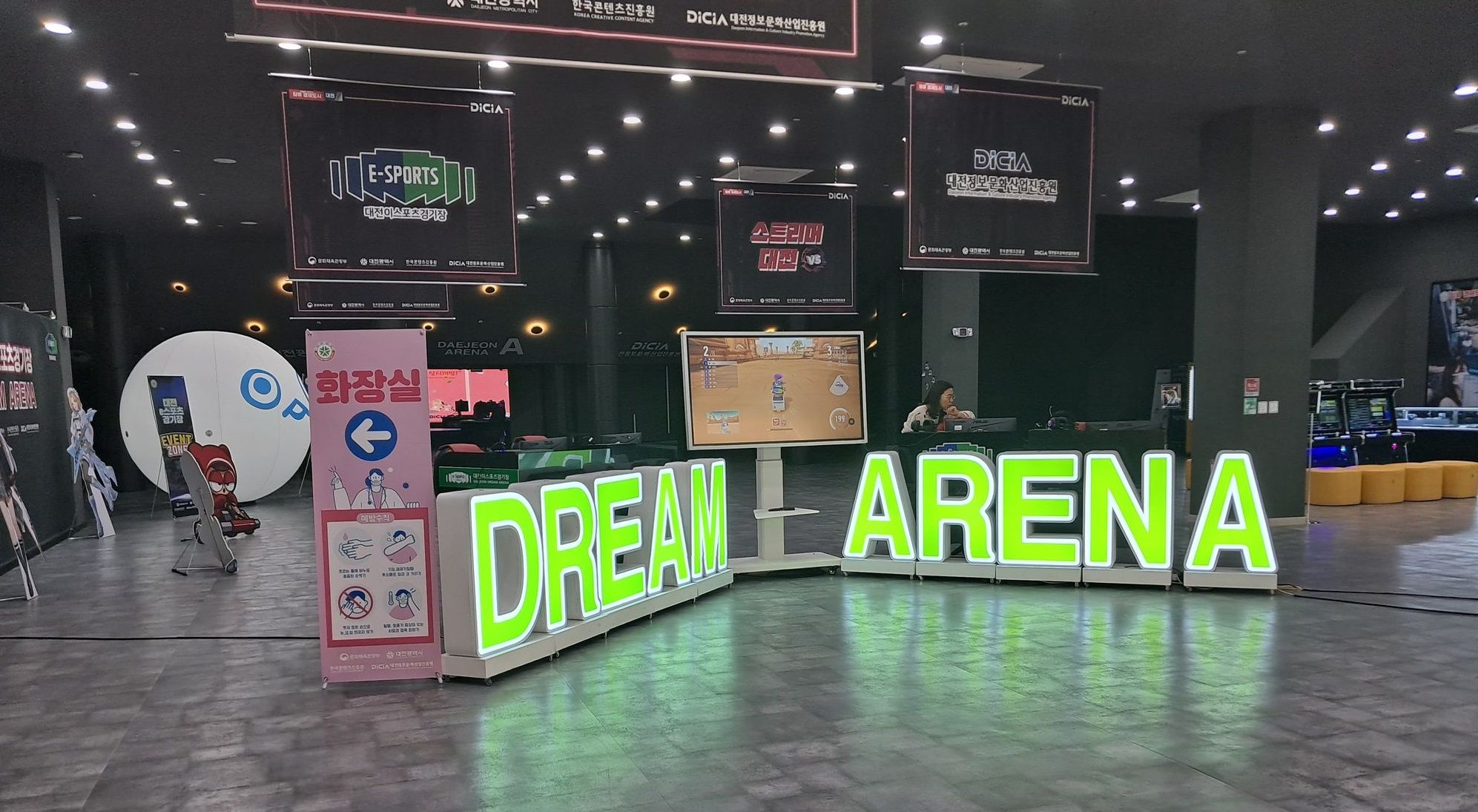
The Daejeon Science Expo Park is a curious blend of the practical and the amusing. The campus is home to a number of academic facilities and scientific organizations, but it's also a piece of charming waterfront property with open spaces ideal for events. On the day I visited, it was home to a street festival offering a wide variety of Korean and international foods, all served in an impromptu al fresco dining area.
But there's something else there that one might not expect in such a studious environment. Walk across the Expo Bridge to the observation tower and turn left, take about twenty steps, and you'll find yourself in front of the Dream Arena. This 500-seat venue is of a type that is becoming increasingly common across mainland Asia - an arena designed specifically for competitive video games. Walk past the retro head-to-head cabinets and the hardware display case and you'll find yourself on a competition floor dominated by high-end machines well-worn by countless games of Counter-Strike and Valorant.
The existence of the Dream Arena - as well as its presence in a place dedicated to prestige commerce and research - is another reminder of the cultural significance that video games play on the mainland. This isn't a mere pastime, but a driver of economic activity and maybe even culture - and it's been a long time coming.
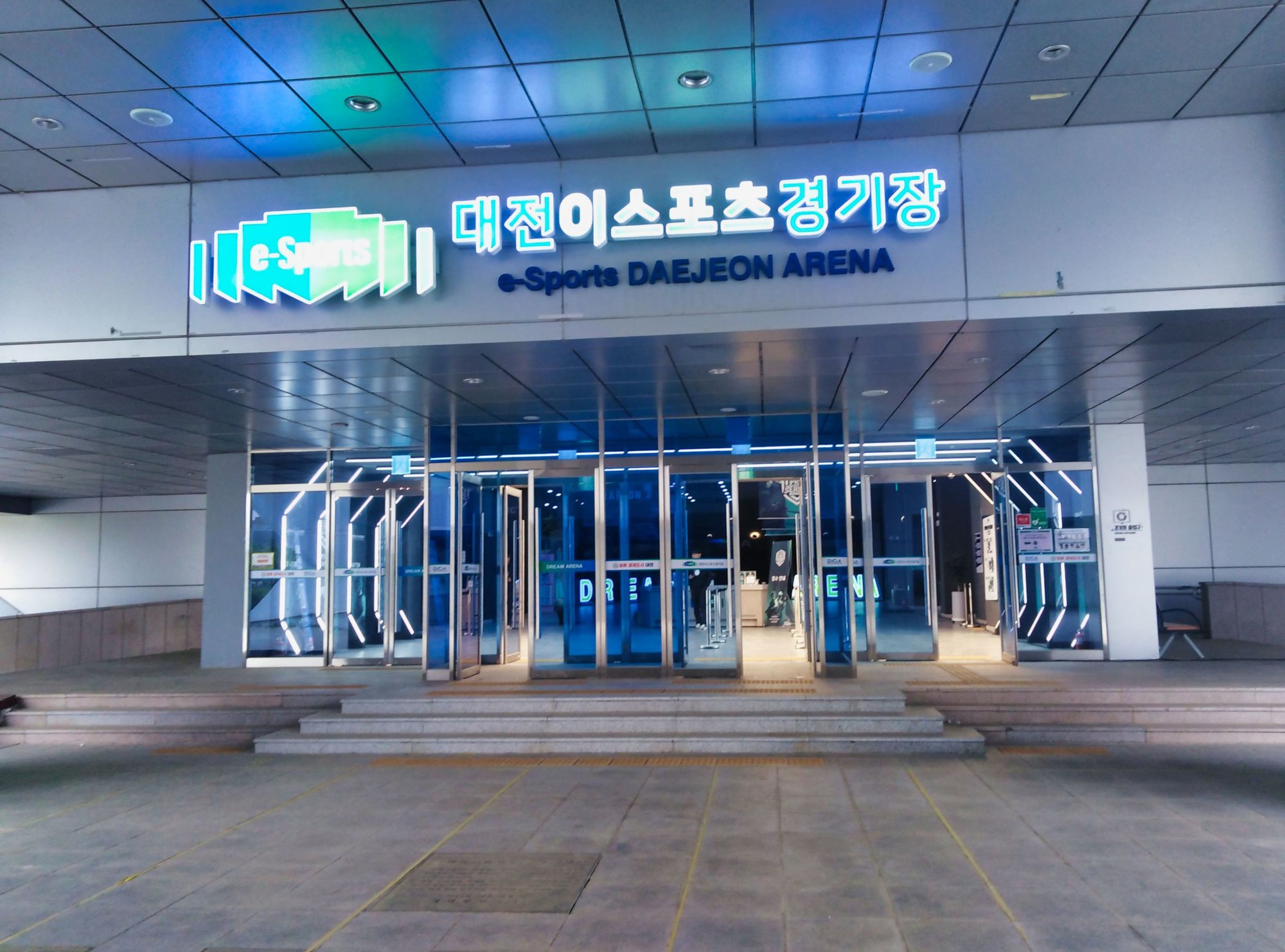
When it comes to eSports, the Republic of Korea is king. Despite being relatively small, the country routinely dominates international competitions and is widely known as a hub for many competitive titles. There is something of a history to this, one that ironically involves a massive backlash against video games.
The PC dominates the Korean video game scene, much as it does in the People's Republic of China - and for very similar reasons. There was a time when consoles were a very big deal here, found in as many as a quarter of homes. One might think that this widespread adoption would make video games culturally acceptable, but the fast adoption actually made electronic games an easy scapegoat for what would come next.
Starting in the mid-90s, Korea was hit by a series of moral panics for which video games were an easy target. It started with an overstated link between video games and epilepsy, followed by a panic (which has never truly ceased) over video game addiction. Consoles, being devices specifically designed to play games, tended to take the brunt of the blame.
While there was never a full import ban akin to that in China, the cultural backlash coupled with some anti-game legislation was enough to suppress the console market in Korea. To this day, consoles are dwarfed by the PC and mobile markets.
The worst of the anti-game laws are largely gone, and Korea remains an important test market for the likes of Sony and Nintendo. Nevertheless, the same traditional values that make parents wary about video game hardware in China are very much present here as well. Few children have access to any sort of videogame-capable devices outside of those provided (for limited periods of time) by family.
By the time they've reached their teens and have some minor degree of autonomy, these young people have discovered something else - something more distinctly Korean - that they prefer to whatever the Japanese electronics giants can offer.
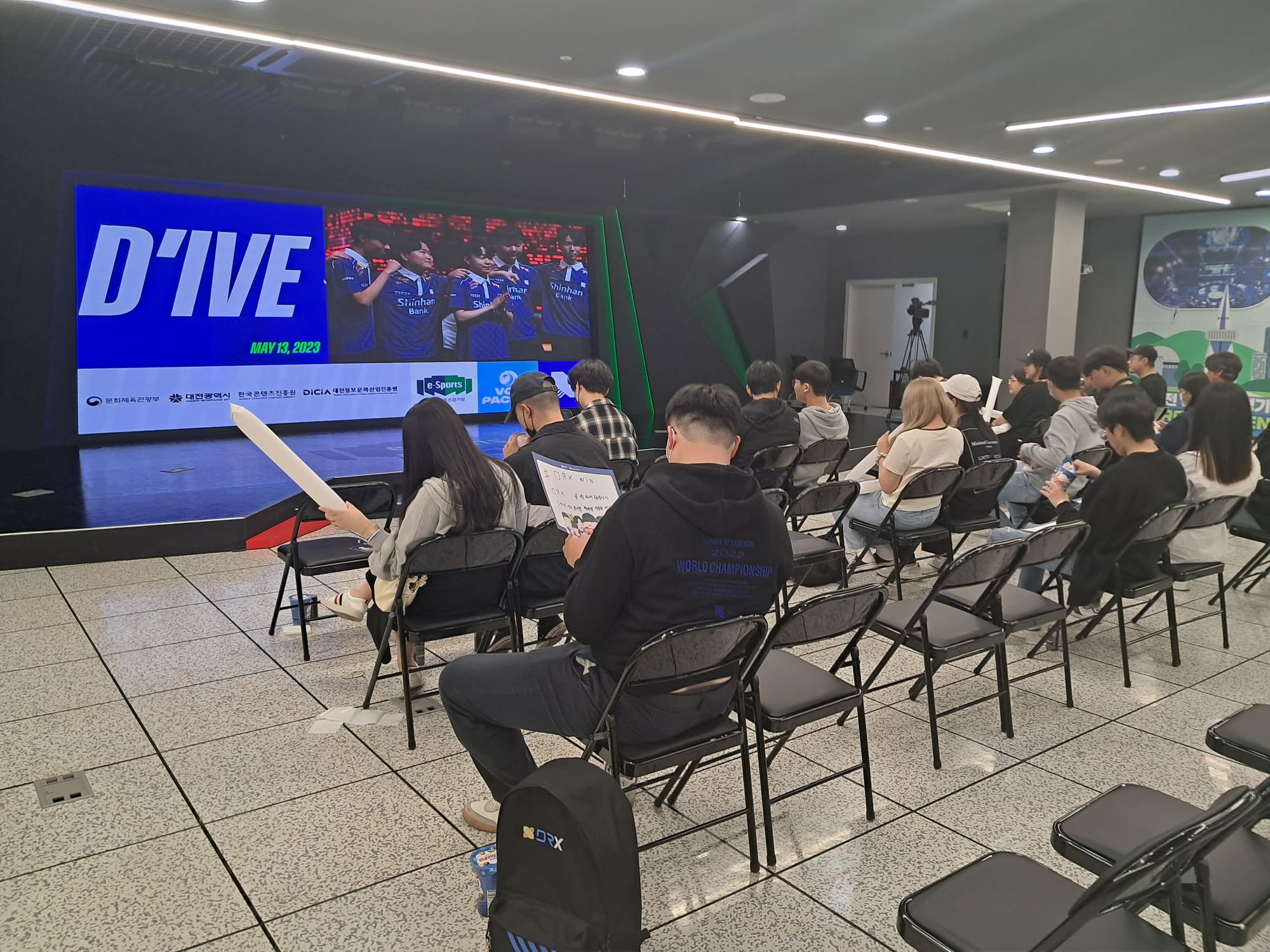
I've been invited to the Dream Arena to sit in the audience for a competition by a local team. While the game is taking place elsewhere, cameras are set up at different places to capture crowd reactions.
I am, at best, vaguely familiar with Valorant, the game on offer today. I'm even less familiar with DRX, the local organization competing, though I quickly gain a primer. DRX has actually fielded a number of teams in different games, with the current Valorant team being a recent acquisition.
The star here - Kim Gu-taek, alias "stax" - is something of a CS: GO phenom whose transition to Valorant has been a little bit rocky. Even so, DRX has been doing very well, and they are favored to beat Team Secret in today's event. The arena is offering a prize for a randomly selected attendee who picks the winners for the attack and defense phases, and the locals are staying loyal.
There's something a bit awkward about being in this room. The man doing the check-in was clearly not expecting someone like me to show up. There is exactly one other Westerner here and I don't recognize him from the usual haunts. An extended ESPN-style analysis prefaces the match, which means nothing to me - while my Mandarin is broken and stumbling, my Korean isn't nearly that good.
At least the instructions for the assembly are easy to catch: Make a lot of noise when DRX does something awesome, double down when they win a round. Even I can handle that.
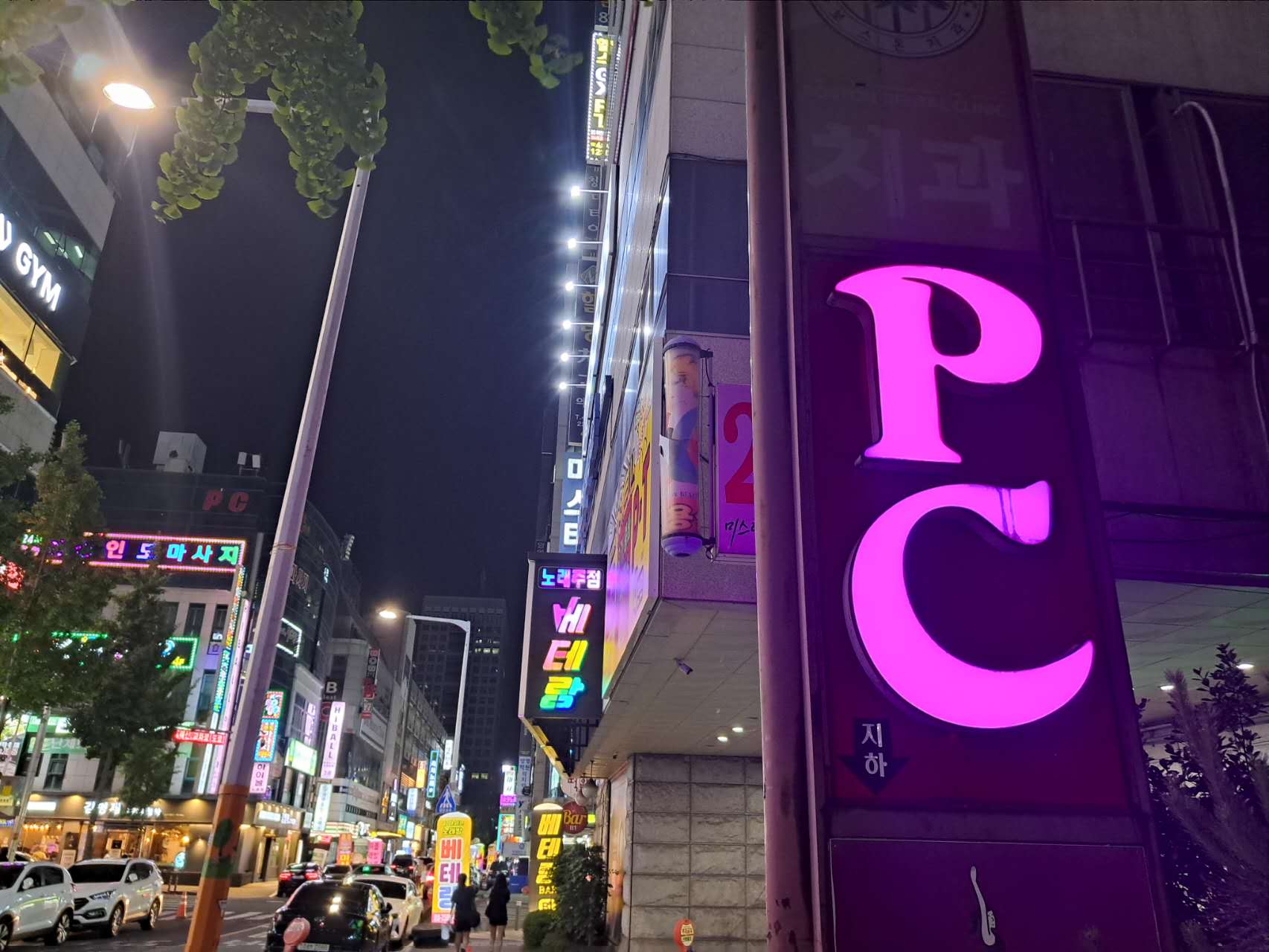
Korean teenagers don't exactly have a wealth of free time. The school day transitions neatly into a second informal learning period - math and English lessons, taekwondo, and preparatory courses for this and that. What little time is left is further limited by the money in your pocket. But find a youth who's managed to scrape together a few thousand won and an unattended hour or two, and there's a good chance that he's going to deposit both at the nearest PC bang.
PC bangs ("PC rooms") are what are known as "internet cafes" in most Western countries or "internet bars" in China. They aren't hard to find - walk the streets of any Korean city and you'll see signs with the letters "PC" affixed to the sides of buildings. Some are anonymous little businesses while others are attached to franchises that proudly declare their connections to the eSports scene.
The growth of PC bangs matches the backlash against consoles. What started as a niche business spread rapidly starting in the late 90s as the local game market transitioned from consoles to computers. The low cost made them popular with younger users, something which has made them controversial in their own right. But PC bangs only kept spreading, buoyed by the burgeoning Korean video game development scene.
The Korean video game market resembles the Chinese market in many ways, with MMORPGs and similar titles being dominant in both places. Korean developers have been working with such games since 1998 with the release of NCSoft's Lineage, which attracted a small subscriber base in the West but was still mainly a Korean phenomenon. Subsequent games - including notable titles such as Ragnarok Online, MapleStory, Guild Wars, ArcheAge, Black Desert, and Lost Ark - made increasing inroads into international markets in addition to being domestic hits.
But not everyone in a PC bang is there for idle entertainment - some are there chasing ambition. They are, in a sense, training in hopes of one day landing a spot on a team for PUBG, Counter-Strike, League of Legends, or Valorant. These are the most dedicated users, the ones willing to sit in an incredibly hot room (which at least isn't choked with cigarette smoke like its Chinese equivalent would be) late into the night at therisk of being labeled an addict.
For some young people, the risk is worth the glory.
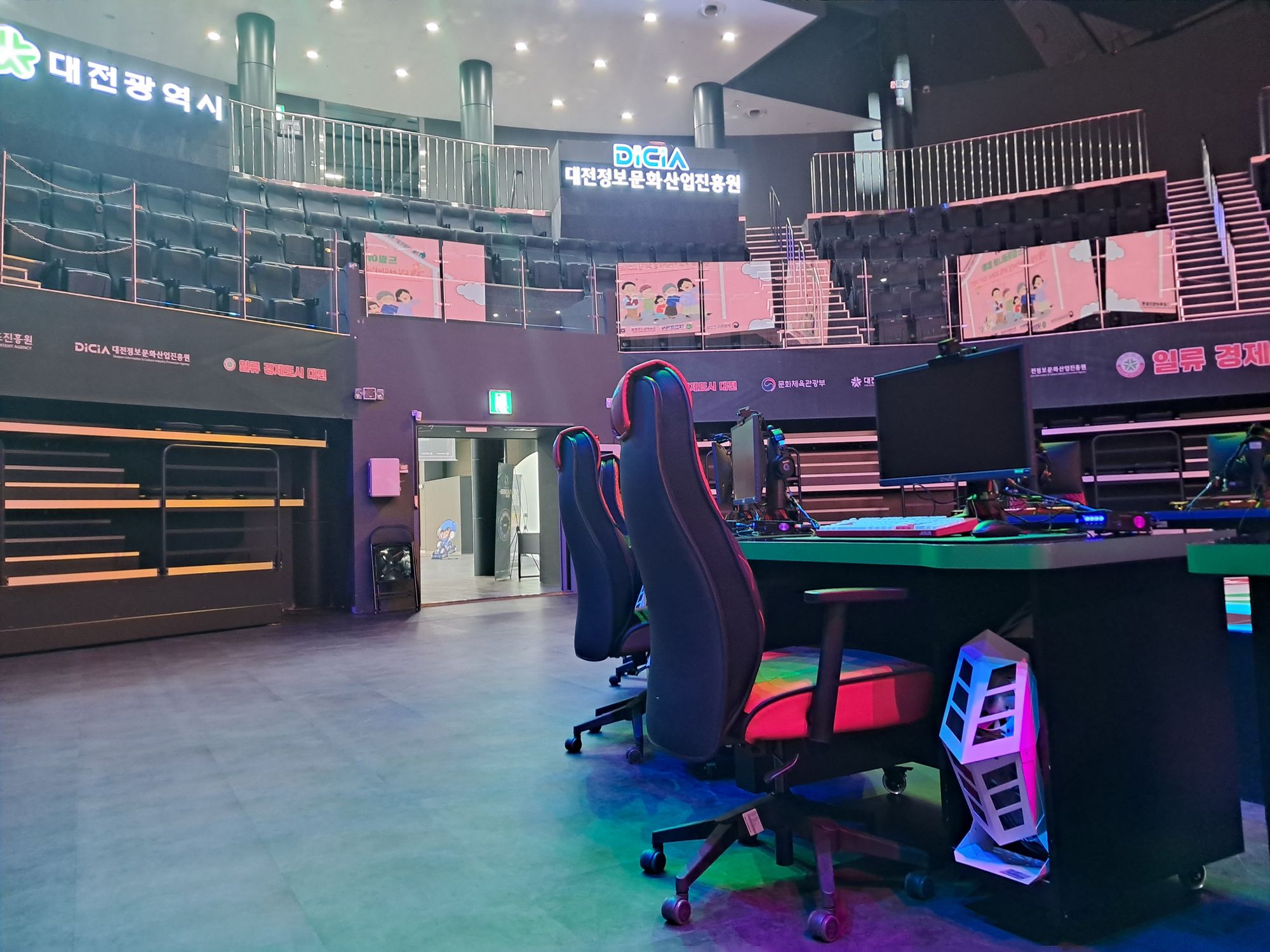
East Asian audiences can be a bit more sedate than what we're used to back home. The onlookers react with expected shock whenever a player on either team makes a big play, and there's a round of applause when DRX clinches a victory, but the reaction to the 8-13 loss is very quiet. Everyone stands up, files out, and goes about their daily routine - perhaps heading out to the street festival for a Cass and a pizza.
The walk back to my apartment gives me time to reflect on what all of this says about video game culture in mainland Asia. Everything about this part of the world - the eSports arenas, the internet cafes, the proliferation of arcades - speaks to a centrally important social aspect of electronic gaming. It isn't just entertainment or even competition, but a means of meeting like-minded people. Understanding this is the key to understanding the region's gaming culture.
